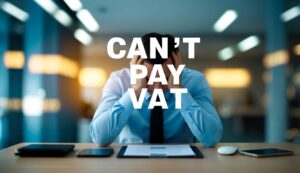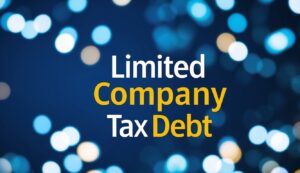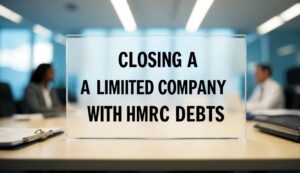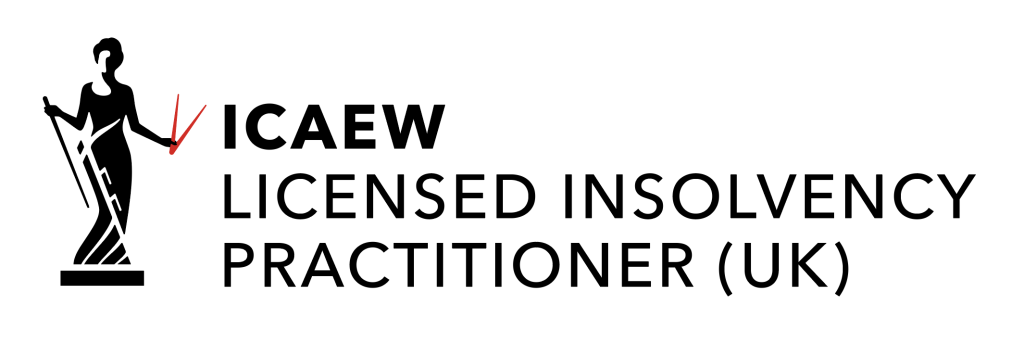Advice Hub & Blog
Practical advice from the team at Anderson Brookes – helping directors close limited companies with debt the right way, with clear guidance and no jargon.
More questions? Just ask
Our Advice Hub
Our Advice Hub and blog are designed to provide helpful, general guidance on closing a limited company with debt and related insolvency topics. All articles are written in collaboration with our experienced team and reflect our commitment to clear, accurate information.
However, every business is different and nothing in this section should be taken as personal or professional advice. While we make every effort to ensure our content is up to date and correct, occasional errors can occur during the content process, especially when working alongside our marketing team.
For the best and most accurate advice, we strongly recommend speaking directly with one of our qualified and licensed insolvency practitioners. They can assess your situation, explain your options in plain English, and help you move forward with confidence.
Need specific advice?
Contact us for a free, no-obligation consultation with our experienced team.
Blogs

The Director’s Guide to Winding-Up Petitions
The Director’s Guide to Winding-Up Petitions Receiving a winding?up petition is one of the most serious threats a company can face. It’s not just another

Liquidation for Small Business: Essential Steps to Close Your Company Properly
Liquidation for Small Business: Essential Steps to Close Your Company Properly Understanding Liquidation Liquidation marks the end of a business’s life cycle when it can

Can’t Pay VAT: What to Do When You Can’t Pay Your VAT Bill
Dealing with VAT Debt: Immediate Steps You Can Take Don’t Ignore the Problem The first and most crucial piece of advice when facing VAT debt

Licensed IPs: What You Need to Know
Licensed IPs (Insolvency Practitioners): What You Need to Know When your business faces financial difficulties, a Licensed Insolvency Practitioner (IP) can provide expert guidance to

What to Do When You Can’t Pay Your Tax Bill: Immediate Steps
What to Do When You Can’t Pay Your Tax Bill: Immediate Steps Don’t Ignore the Problem The worst approach when you can’t pay tax is

Closing a Limited Company with HMRC Debts
Closing a Limited Company with HMRC Debts: Expert Guide Realising your limited company can no longer continue trading, especially when HMRC debts are involved, can
Testimonials
Our clients praise our professionalism, reliability, and the exceptional support we provide during challenging times, helping thousands of company directors through insolvency, liquidation, and business debt solutions.
Frequently Asked Questions
Have a company in England or Wales? These are your limited company business debt, liquidation and insolvency questions answered.
Can I liquidate the company myself?
No. Only a Licensed Insolvency Practitioner can place a company into liquidation.
What are the advantages of liquidation?
Placing the company into liquidation will stop debt enforcement, including bailiff action. The directors are usually in control of the process and can choose the liquidator. In most cases, it can be completed within two weeks without needing to attend any formal meetings. Company debts are usually written off unless they are personally guaranteed. Directors who act responsibly can show they handled the company’s financial affairs properly.
Is liquidation the same as dissolving the company?
No. Only a Licensed Insolvency Practitioner can liquidate a company. A director can apply to dissolve a company through Companies House, but only if certain conditions are met. If the company is insolvent, it may be a criminal offence to apply for strike-off. Always take professional advice before doing this. If you think you might qualify for dissolution, call us and we’ll explain the process. See our Licensed vs Unregulated page.
What is compulsory liquidation?
This happens when a creditor applies to court to wind up a company due to non-payment of a debt over £750. If the court agrees, the company is placed into compulsory liquidation. This often leads to more problems for directors, who may find it harder to defend against accusations such as wrongful trading. It is usually better to start the process voluntarily. See Strike Off vs Voluntary Liquidation for more details.
How much will it cost to liquidate my company?
It depends on your situation. In most cases, the directors do not pay the costs personally. The liquidation is paid for using company assets. We are a small practice based in Bolton with low overheads, so we offer some of the most competitive fees in the UK. All costs will be confirmed in writing before we proceed. You may also be interested in CVL Costs.
What is a phoenix company?
This is a new limited company that starts after an old one has gone into liquidation. It allows the business to carry on with the profitable parts of the original company. There are strict rules about reusing a company name, so it’s important to get advice before going ahead. For further detail and more simple explanations of insolvency and liquidation terms see our Glossary.
What is a Members’ Voluntary Liquidation (MVL)?
An MVL is used when a company is still solvent and can repay all its debts. It may be the right option if directors want to retire or step away from the business. MVLs can offer tax benefits, but they must be handled by a Licensed Insolvency Practitioner. See all types of liquidations.
What is wrongful trading?
If a company is insolvent and directors carry on trading, they may be accused of wrongful trading. A director could be held personally liable if they knew, or should have known, that the company couldn’t avoid liquidation and did not act to reduce losses. Acting early helps reduce this risk.
Do you only offer formal insolvency advice?
No. Many businesses contact us who do not need formal insolvency procedures. We help explore all the options, including self-help and informal solutions. If formal action is needed, our Licensed Insolvency Practitioner can act for you directly.


